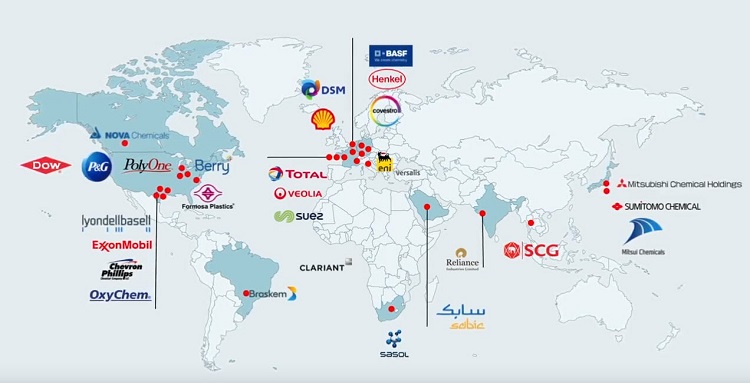New Global Alliance Commits $1 Billion to Ending Plastic Waste
An alliance of global companies has launched a new organization to advance solutions to eliminate plastic waste in the environment, especially in the ocean.
The cross value chain Alliance to End Plastic Waste (AEPW), currently made up of nearly 30 member companies, has committed over $1 billion with the goal of investing $1.5 billion over the next five years to help end plastic waste in the environment. The Alliance will develop and bring to scale solutions that will minimize and manage plastic waste and promote solutions for used plastics by helping to enable a circular economy. The Alliance membership represents global companies and located throughout North and South America, Europe, Asia, Southeast Asia, Africa, and the Middle East and includes oil majors Shell, ExxonMobil and Total.
The Alliance is a not-for-profit organization that includes chemical and plastic manufacturers, consumer goods companies, retailers, converters and waste management companies. The Alliance has been working with the World Business Council for Sustainable Development as a founding strategic partner. David Taylor, Chairman of the Board, President and CEO of Procter & Gamble, and chairman of the AEPW, urges all companies, big and small and from all regions and sectors, to join the Alliance.
Research from the Ocean Conservancy shows that nearly 80 percent of plastic waste in the ocean begins as litter on land, the vast majority of which travels to the sea by rivers. One study estimates that over 90 percent of river borne plastic in the ocean comes from 10 major rivers around the world – eight in Asia, and two in Africa. 60 percent of plastic waste in the ocean can be sourced to five countries in Southeast Asia.
The Alliance has an initial set of projects:
• Partnering with cities to design integrated waste management systems in large urban areas where infrastructure is lacking, especially those along rivers which transport vast amounts of unmanaged plastic waste from land to the ocean. The Alliance will also be looking to collaborate with other programs working with cities, such as Project STOP, which is working in Indonesia.
• Funding The Incubator Network by Circulate Capital to develop and promote technologies, business models and entrepreneurs that prevent ocean plastic waste and improve waste management and recycling, with the intention of creating a pipeline of projects for investment, with an initial focus on Southeast Asia.
• Developing an open source, science-based global information project to support waste management projects globally with reliable data collection, metrics, standards, and methodologies. The Alliance will explore opportunities to partner with leading academic institutions and other organizations already involved in similar types of data collection.
• Creating a capacity building collaboration with intergovernmental organizations such as the United Nations to conduct joint workshops for government officials and community-based leaders to help them identify and pursue the most effective and locally-relevant solutions in the highest priority areas.
• Supporting Renew Oceans to aid localized investment and engagement. The program is designed to capture plastic waste before it reaches the ocean from the 10 major rivers shown to carry the vast majority of land-based waste to the ocean. The initial work will support the Renew Ganga project, which has also received support from the National Geographic Society.

that matters most
Get the latest maritime news delivered to your inbox daily.
The following companies are the founding members of the Alliance: BASF, Berry Global, Braskem, Chevron Phillips Chemical Company LLC, Clariant, Covestro, Dow, DSM, ExxonMobil, Formosa Plastics Corporation USA, Henkel, LyondellBasell, Mitsubishi Chemical Holdings, Mitsui Chemicals, NOVA Chemicals, OxyChem, PolyOne, Procter & Gamble, Reliance Industries, SABIC, Sasol, SUEZ, Shell, SCG Chemicals, Sumitomo Chemical, Total, Veolia, and Versalis (Eni).

